The Moustached Journalist says;
The Nationwide League One (NLO) has been in existence for many years now. Although, it was in July 2008 at the Annual General Assembly of the Nigeria Football Federation (NFF) that a temporary constitutional league body was formally installed for the running of the amateur league for the first time.

The NLO is an affiliate of the NFF and a licensed football league under its jurisdiction. The NLO is responsible for the organization of football competitions in the third-tier division with 300 registered clubs and academies across the country. It is regarded as the largest grassroots football league in the world.
The disbanded Interim Management Committee (IMC) of NLO was inaugurated by Sani Lulu, a one-time President of NFF to helm the affairs of the nation’s lower league. The membership of the committee comprised of Alh. Abubakar C. Ladan as Chairman; while Mr. Dele Ogungbemi, Mr. Lucky G. Ewa, Alh. S. Garba, Mr. Philip Nnogu, Alh. Yahaya Hadejia, and Mr. Obasi Akpan as other members with Mr. Emmanuel Adesanya as the Board Secretary.

The 2008/09 NLO season kicked off in November 2008 and successfully ended the following year. However, it is structured into a league format of three cohabiting subdivisions – Division One, Two and Three. Eight teams are promoted from the NLO to the Nigeria National League (NNL) at the end of the season, while eight teams are relegated from the NNL to the NLO. Equally, eight teams are promoted from Division Two to Division One, while eight teams are relegated from Division One to Two each year.
At the same time, Division Three teams play at eight different centres with the top teams in each centre getting promotions to Division Two, while the teams at the bottom are completely relegated out of the NLO. Meanwhile, Playoffs into Division Three take place prior to the start of a new season.

A commonly nonchalance in the NLO is that in most cases when teams gain promotions from other subdivisions of the amateur league tend to sell their slots to the highest bidder for absurd reasons best known to them alone.
In 2012, the League Management Board had to change its name from the Amateur League to the now Nationwide League One and will promote three teams per division instead of two. This was after a long delay in confirming promotions from the year before that due to teams’ protests.
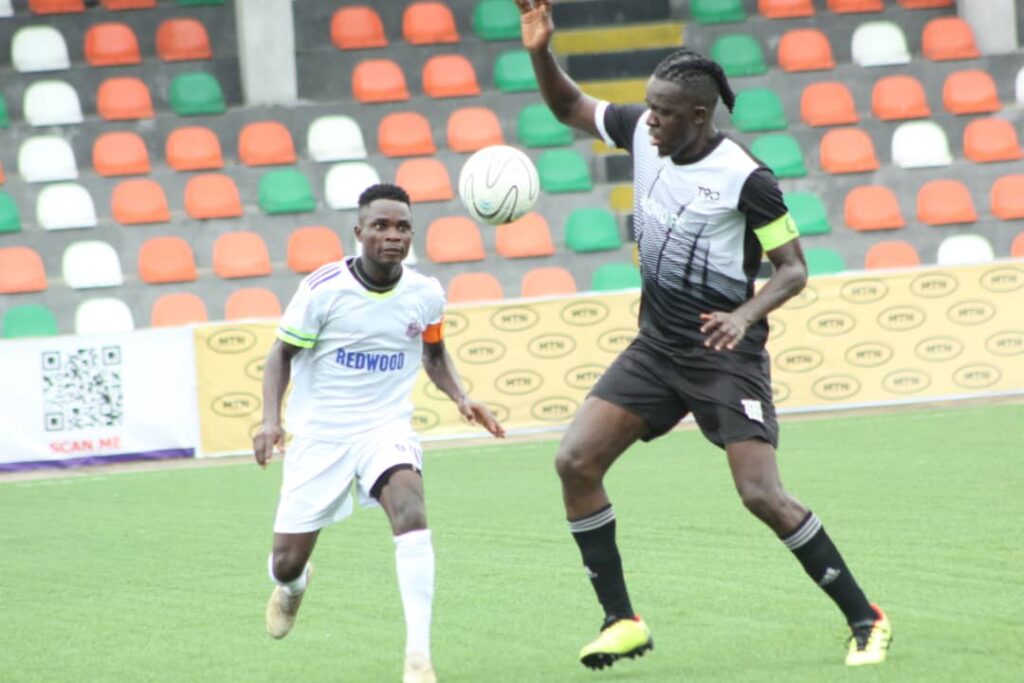
Most of the teams are primarily sponsored by private individuals/corporate bodies or Local Government Areas (LGA) and funding at this level is minimal. Any team eligible to move to the NLO Division One must qualify for a Professional League license and commit to the increased spending. This single move by the league body was to deliberately compelled stakeholders (administrators/owners) to be enormous in investing on the clubs and/or academies.
However, the league doubled in size to 80 teams after the completion of 2015/16 season. Teams will play in five-team divisions, with the winner of each division playing the corresponding group for the one promotion slot. That of 2019/20 season was cancelled after being affected by the COVID-19 pandemic.
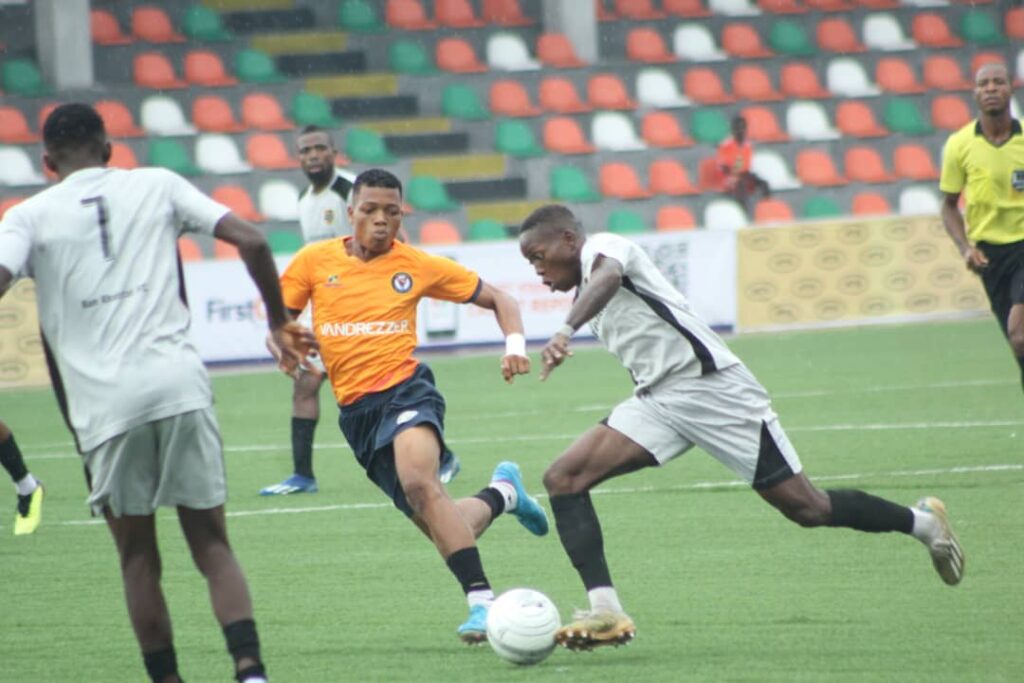
Having recently set an age limit of between 16-19, and as a way to checkmate age cheating, the NLO insists that all players to be registered for the Youth League must submit their Birth Certificates, Primary School Leaving Certificates and National Identification Number (NIN).
This new development is in line with the directives of the Nigeria Football Federation to refurbish, reposition and rebrand the lower league as a means of breeding ground for young talents for the national youth teams.

This, no doubt, highly speak volume of what can be seen as an outstanding ‘breeding ground for the future of Nigerian football’ vision under the NFF leadership of Alhaji Ibrahim Musa Gasau on making adequate provisions for all 300 football clubs across all three divisions of the league.
Most importantly, ensuring that these club administrators/owners respectively review their developmental policies in all ramifications in support of the aforementioned. This, obviously, will help the NFF to scout and manage promising talents from the amateur league in building formidable and vibrant national teams at the youth levels.

Besides this palatable implementation orchestrated by the current administration of NFF, there is a lot that still have to be done in terms of huge capital investment, developmental programmes, high-quality training facilities, good welfare packages, standard sports curriculum etc into these football clubs and academies around the country will create enabling environment for breeding talents. If things are properly channelled and executed, the quality of football clubs and academies across the amateur league will exceedingly turn Nigeria into a breeding ground for future stars.
Football at the grassroots levels have long been a breeding ground for exceptional talents who can represent the nation on both local and international stages. However, too often, these astounding talents are gems that are commonly scattered across nooks and crannies, in the ghettos, in the slums and shanties, and various inconceivable places.

Tragically, many of these talented individuals have fallen victims of common societal vices – fraudulence, rituals and hard drugs, while others suffers from lack of opportunities or empty promises of securing a contract overseas by unscrupulous football agents.
It is rather comical that football is not a big factor in the economy of a country as ours. We were once the biggest footballing nation on the continent and respected in the global scene. Unsurprisingly, Nigeria was then seen as breeding ground for European clubs to explore young talents, refine and integrate them into their own footballing systems. It is so clear that football would remain static and in bad shape, if futuristic actions are not taken.
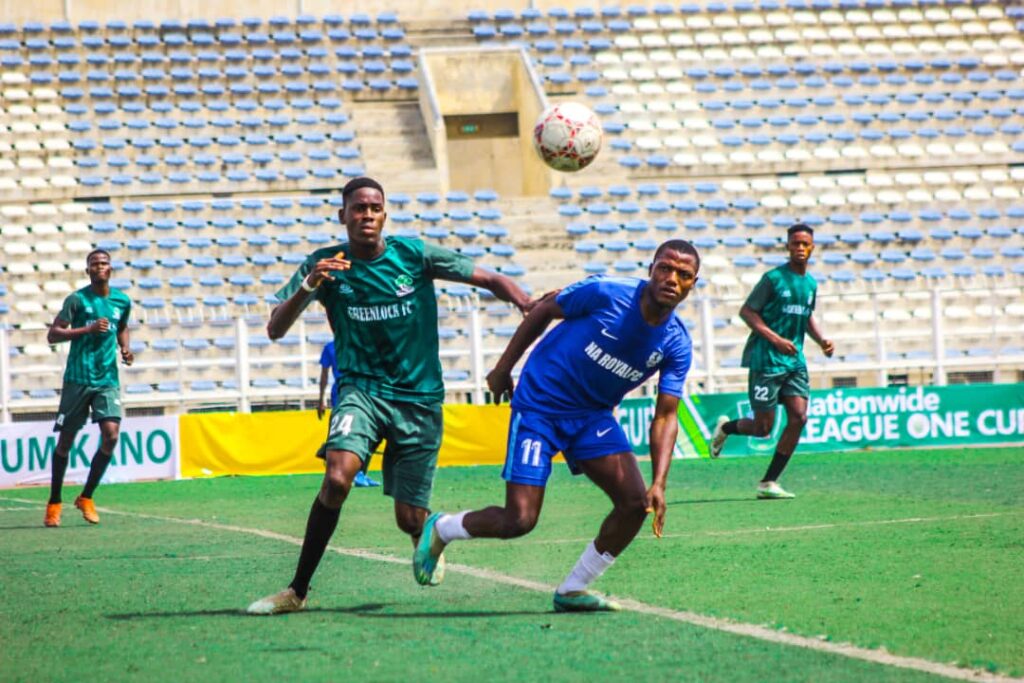
It is in order to properly leverage on football as a platform for youth empowerment that the Ibrahim Musa Gasau-led NFF Board is deploying various strategies to harness the sporting potentials of youth in the nation’s third-tier division. One of the recent activities that mirrored the current administration of NFF to raise the bar in the development of the amateur league.
As part of efforts aimed at addressing societal disadvantage, marginalisation, unemployment and other challenges which the youth face today, the NFF leadership under Alhaji Ibrahim Musa Gasau has made revampment of NLO an integral part of its youth empowerment drive.
Concurrently, football has become a business concern that contributes to gross earnings of many countries. It would be of a great advantage to us to realize that we can actually revamp the game, but to do that we would have to take out the specks in our eyes to see the business side of football.
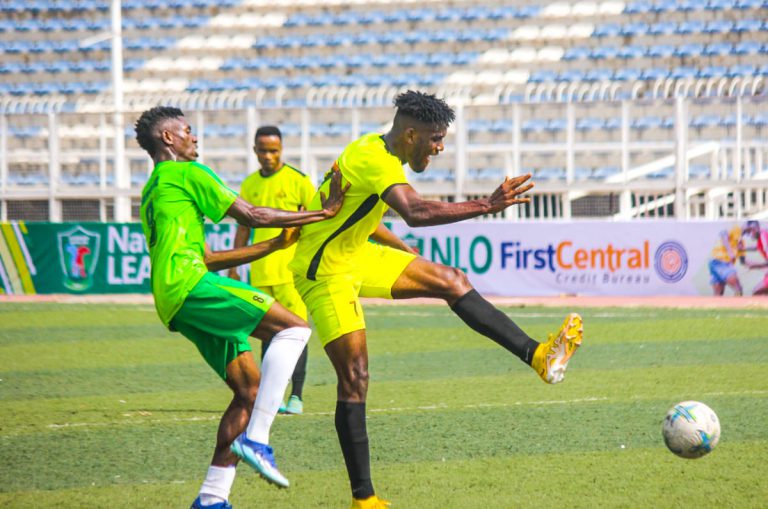
It is a well-known and universally accepted fact that football as a sport when well organised is an excellent vehicle for teaching moral decision making and promoting fair play, trust, tolerance, team work, honesty, respect of the opponent, all of which stay with them for their entire life. In this respect, football is the best school of life; the skills learned through play and fun are fundamental to the holistic development of young people.
These skills, such as cooperation and confidence are essential for social cohesion and are carried through adult life. For this, it is advisable for the NFF with the support of the Ministry of Youth & Sports Development to focus on developing football infrastructures to add great value to the life of young talents.

Football harbours tremendous opportunities for economic growth, empowerment, employment generation, poverty alleviation as well as progressive youth and social development. With the writer’s humble appeal to individuals, private and corporate organisations in the country to complement the efforts of the NFF and the Ministry of Youth & Sports Development by investing more robustly in Nigerian football.
For example, football in Brazil remains a viable business and a veritable breeding ground for budding sporting talents. Most of the country’s most celebrated legends and current soccer sensations in the world of football began their sporting tutelage from the grassroots levels. Across playgrounds in the busy neighborhood of major cities like Rio de Janeiro, Sao Paulo, Miniero to mention a few; boys of all ages are fond of the game of football and can be seen playing in great excitement with portrayal of mind-blowing skills at its best.
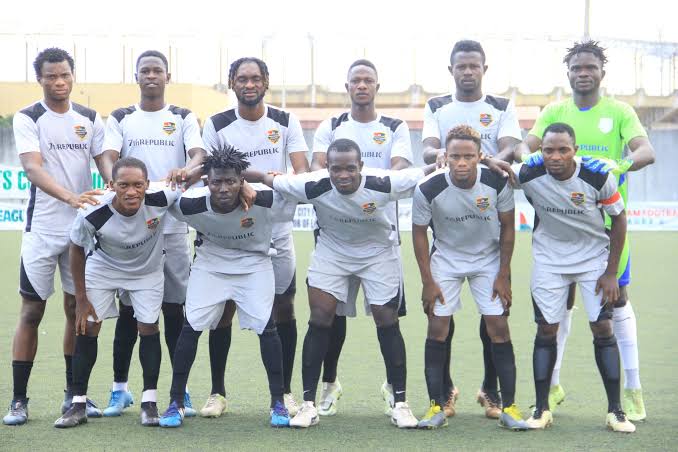
If we want the same for Nigeria, we should invest heavily on developing the game at the grassroots levels. Although it would take time, but it has been done by the biggest footballing countries and today they dominate. If there is a particular style of football or philosophy we want, it should be drilled into our national youth teams so that a continuous development programme for young talents to transition into the senior national team.
The Golden Eaglets of Nigeria have been a major competitor at the CAF U-17 Africa Cup of Nations and the U-17 FIFA World Cup. The country’s youth national team have scooped both laurels a number of times and have produced some of the finest young players that have gone up through the ranks of the senior men’s national team such array of stars like Nwankwo Kanu, Mikel Obi, Taiye Taiwo, Kelechi Iheanacho, Victor Osimhen, Kelechi Nwakali, Samuel Chukwueze among others.
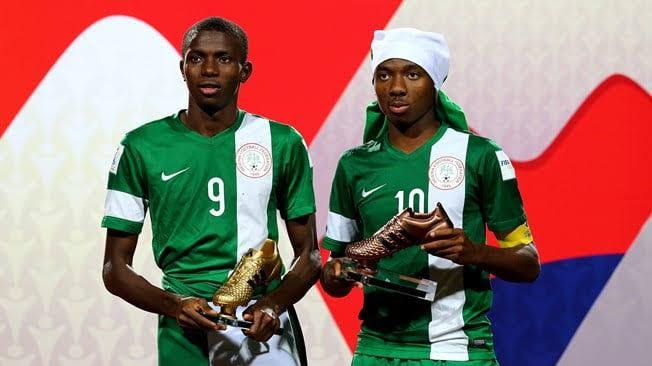
It symbolized the young generation of footballers that have came out of Nigeria into a new sporting territory. Therefore, we should wake up from our past glory, roll up the sleeves and mould new enthralling young talents in the lower league to refill the empty spaces that has been long unoccupied. This will no doubt immensely explore future stars in the country.
Sadly, with obvious instances of how Nigeria has woefully degraded in terms of performances, improvements and successes in the age grade tournaments. Specifically, in recent outings at the 2023 CAF U-17 & U-20 Africa Cup of Nations in Algeria and Egypt respectively. Also, the 2023 FIFA U-20 World Cup in Argentina was incompletely displeasing while outrightly failed to secure a qualification spot as one of Africa’s representatives at the 2023 FIFA U-17 World Cup in Indonesia.
